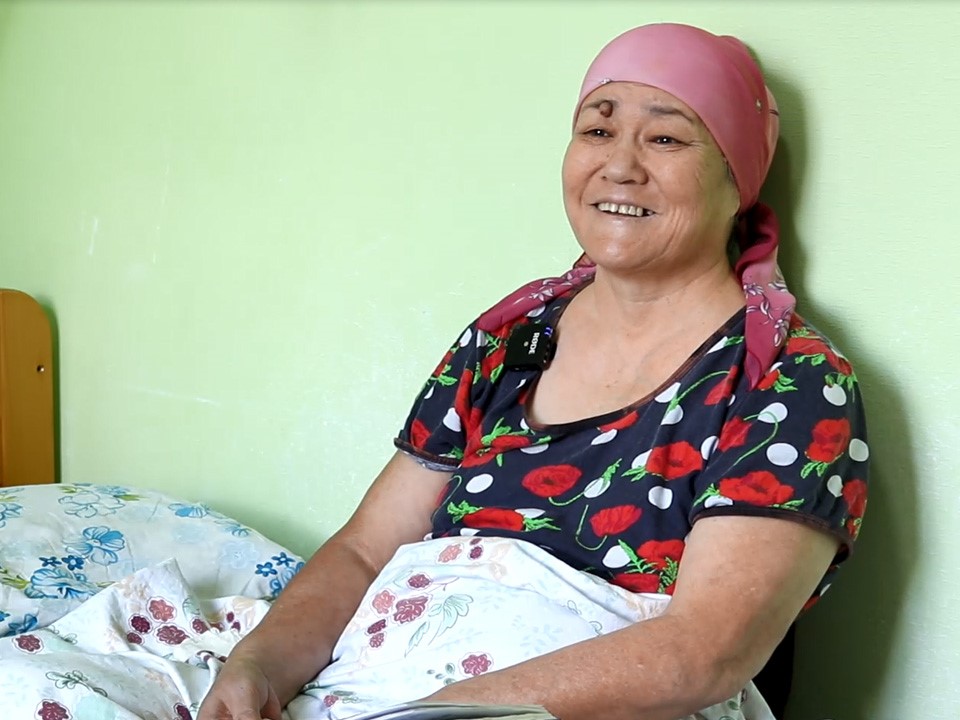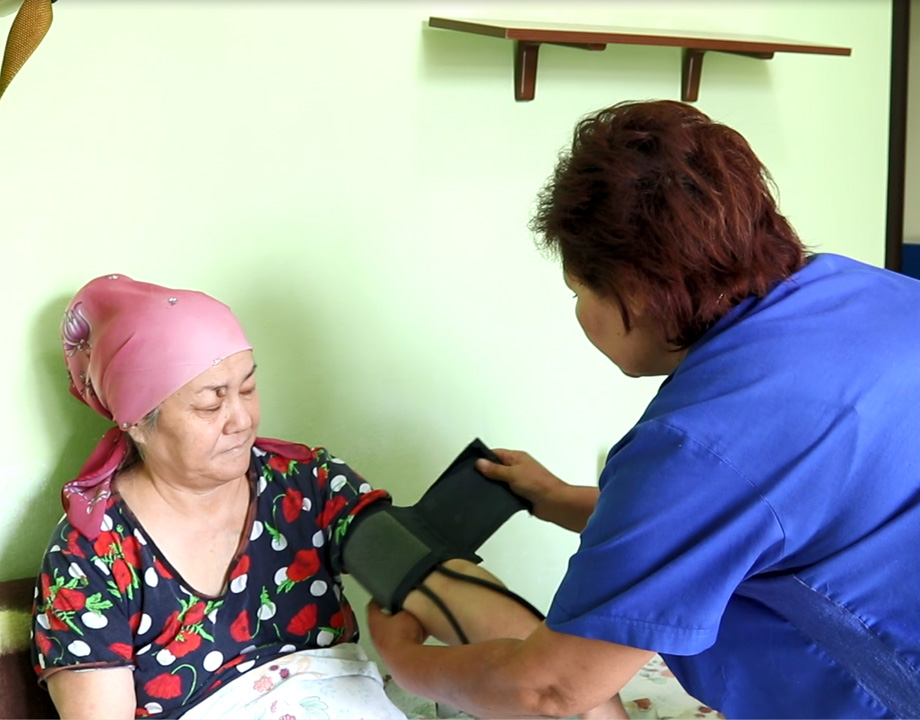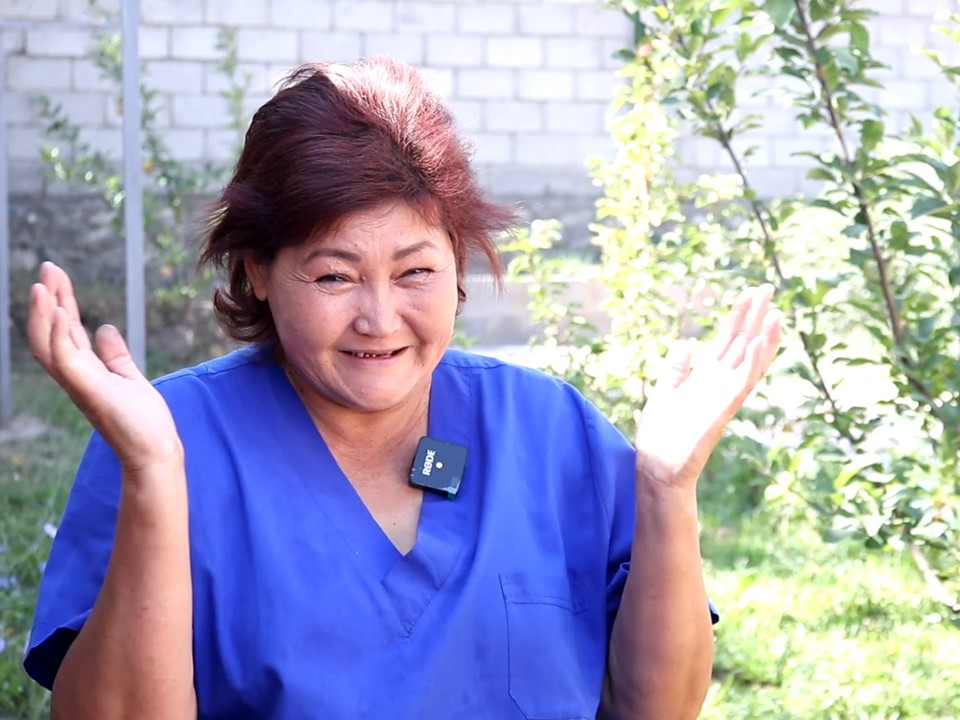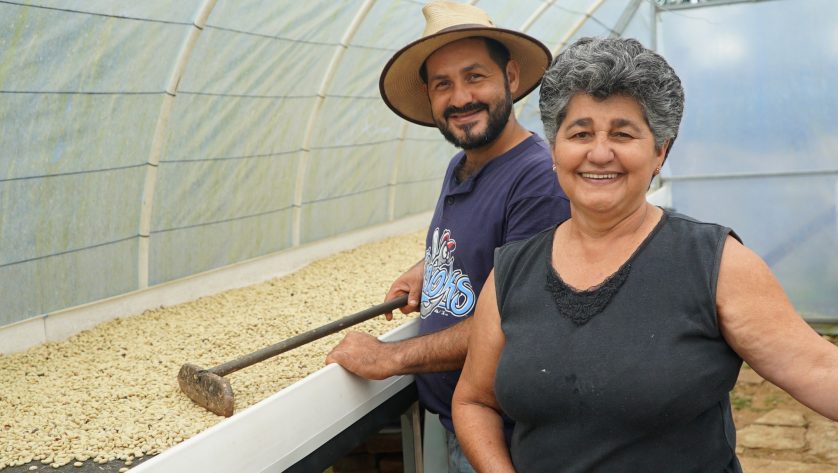At 55 years old, Myskal Mykambetova has already lived a very full life. After graduating from pedagogical school, she got married, worked in theatre and a gold mine, and she raised a large family. She is a very proud mother and grandmother.
“I was so happy when my son was born,” she says. “I am so proud that I raised my children well. I helped them choose the right path.”
“I see my grandkids. They are very well-behaved.”
But a few years ago, her life took an unexpected turn. After getting her kidney removed in 2013, a lump appeared in its place. “I recovered after surgery, but I ended up like this,” she says from her bed. “I can’t walk.”
Mykambetova found herself in a very difficult situation, one in which many people ultimately find themselves: in need of nearly full-time care, but without a place to go, the resources to pay, or family members who are able to provide all the care needed. “My children are working these days, so there was no one who could take care of me,” she says.
Fortunately, a few years earlier, the Kyrgyzstan Red Crescent realised that more and more people in the region were in the same predicament. So it opened the Centre for Medico-Social Assistance, which now resides inside a small, one-story peach-coloured building surrounded by white and red rose bushes in Bishkek, Kyrgyzstan.
“Caregivers are always around me,” says Mykambetova. “They ask me about my wishes. They are such good people. I still keep in touch with workers who left. And they also visit me sometimes.”
The nurses help patients take their medication, deal with bouts of intense pain, bring them their food, and help them stay clean, healthy and as happy as possible under the circumstances.
“When I have scary thoughts, I cry so much,” says Mykambetova. “I cry and cry and then calm down. When I’m in extreme pain and stress, I call the nurses. They listen to me and help me immensely.”
 Red Cross Red Crescent magazine
Red Cross Red Crescent magazine 










 Tech & Innovation
Tech & Innovation Climate Change
Climate Change Volunteers
Volunteers Migration
Migration